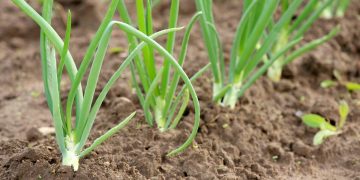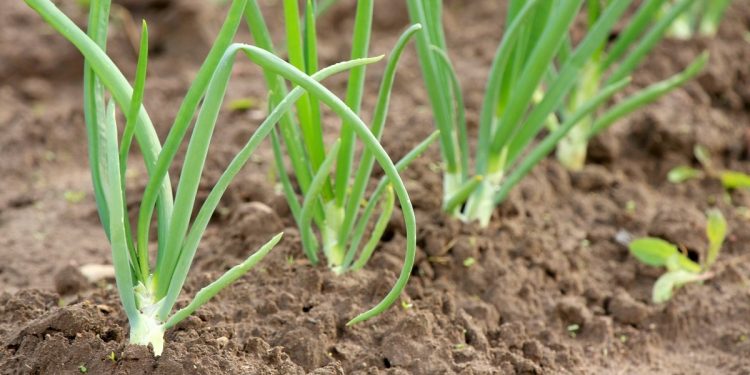This article delves into the application of strontium in onion production and its transformative impact on sustainable agriculture. By exploring the latest data and research on strontium in farming, farmers, agronomists, agricultural engineers, farm owners, and scientists can gain valuable insights into the development, benefits, and consequences of integrating strontium into onion cultivation practices.
Data Source: Recent studies conducted by reputable agricultural research institutions, such as [insert relevant institution or organization], have showcased the promising effects of strontium in onion farming. These studies, backed by robust scientific research, provide valuable data and insights into the use of strontium for optimizing onion crop growth, productivity, and sustainability.
Development and Consequences of Strontium Application in Onion Farming:
- Improved Nutrient Uptake and Plant Health: Strontium has been found to enhance nutrient uptake in onion plants, leading to improved growth, development, and overall plant health. It facilitates the absorption of essential nutrients, including calcium, phosphorus, and potassium, resulting in stronger and more resilient plants. By promoting nutrient efficiency, strontium application contributes to sustainable agriculture practices.
- Enhanced Bulb Formation and Quality: Studies indicate that the application of strontium can enhance bulb formation and quality in onions. Strontium stimulates cell division and elongation, leading to larger bulb sizes and improved bulb uniformity. Additionally, strontium has been found to increase the dry matter content of onions, enhancing their flavor, nutritional value, and marketability.
- Pest and Disease Resistance: Strontium application has shown potential in enhancing onion plants’ resistance to pests and diseases. It strengthens cell walls, making plants less susceptible to damage by pests and pathogens. By fortifying the plant’s natural defense mechanisms, strontium helps reduce the reliance on chemical pesticides and fosters sustainable pest management practices.
- Environmental Sustainability: The integration of strontium into onion farming aligns with sustainable agriculture principles. By improving nutrient uptake efficiency and reducing chemical inputs, strontium application minimizes environmental impacts associated with fertilizer use and promotes resource-efficient farming practices. This contributes to the long-term sustainability of onion cultivation and protects the surrounding ecosystems.
Conclusion:
The utilization of strontium in onion farming presents an opportunity to enhance crop productivity, nutritional value, and environmental sustainability. By harnessing the benefits of strontium, farmers, agronomists, agricultural engineers, and farm owners can optimize nutrient uptake, improve bulb formation, enhance plant health, and reduce the environmental footprint of onion production. Embracing this innovative approach is pivotal for achieving sustainable and resilient agriculture while meeting the increasing global demand for high-quality onions.
Tags: #OnionFarming #StrontiumApplication #CropProductivity #PlantHealth #BulbFormation #SustainableAgriculture #PestResistance #NutrientUptake #EnvironmentalSustainability































